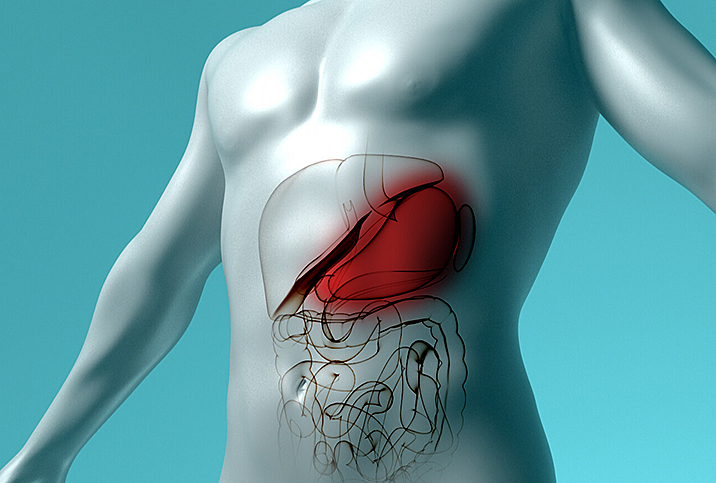Digestive Disorders: Myths & Misconceptions

Digestive disorders aren't some made-for-TV illnesses that nobody really gets. They're real, and they affect sufferers' gastrointestinal tract, which includes the stomach, the small and large intestines, the esophagus, the gallbladder, the liver and the pancreas.
Some of the most common digestive disorders include lactose intolerance, irritable bowel syndrome (IBS), ulcerative colitis (UC), Crohn's disease and gastroesophageal reflux disease (GERD). These conditions can cause a variety of symptoms that range from mild to severe, depending on the case.
Here, we look at five common myths about digestive disorders and find out what the underlying facts actually are, because knowing how to keep disorders under control will improve your overall health, including your sexual health.
Myth: Having heartburn is no big deal.
Reality: It's not uncommon for people to get heartburn from time to time, but if you experience it consistently—a couple of times a week or more is the general estimate—you should consult your doctor. Persistent heartburn can be a sign of gastroesophageal reflux disease, which, left untreated, can lead to complications such as the development of ulcers and bleeding of the esophagus. So if you've been getting heartburn on a regular basis, consider scheduling a doctor's visit for an evaluation.
Myth: Inflammatory bowel disease is caused by stress and diet.
Reality: Research conducted in recent years has found this is not true, though it was widely accepted for years. Researchers now believe that stress and diet can aggravate the condition and potentially lead to flare-ups, but they do not cause the disease itself. This myth persists partly because people sometimes confuse inflammatory bowel disease (IBD) for IBS, which is a condition that has in the past been incorrectly linked to mental health issues such as anxiety, depression and panic disorder.
Myth: Irritable bowel syndrome is caused by psychological problems.
Reality: According to the Canadian Society of Intestinal Research, the notion that irritable bowel syndrome is caused by psychological issues is a dangerous misconception. Over the years, this myth has created a stigma around IBS that can prevent people from reaching out for help due to embarrassment and shame. It's true that stress, anxiety and depression can cause IBS flare-ups, but these issues are not the root causes of the syndrome.
Myth: Being lactose intolerant means I have a milk allergy.
Reality: This isn't the case. Lactose intolerance occurs when a person cannot fully digest the sugar in milk, causing symptoms such as diarrhea, gas and bloating, which are triggered by dairy consumption. A lactose-intolerant person's body doesn't produce enough of an enzyme called lactase, which is needed to digest dairy. Many people who are lactose intolerant are able to manage the condition without giving up dairy foods altogether, whereas people who are allergic to milk can suffer deadly complications if they consume it at all.
Myth: Spicy foods are the only cause of acid reflux.
Reality: There's no doubt that a particularly spicy meal is often accompanied by acid reflux. However, acid reflux can be triggered by an array of factors and can vary from person to person. Some people get acid reflux only after they consume fatty and greasy foods such as bacon or after drinking coffee or alcohol. In some cases, acid reflux isn't triggered by food at all. Smoking and conditions such as diabetes and asthma can be the underlying cause of acid reflux. If you're experiencing acid reflux and are unsure of what's causing it, consult your doctor to identify triggers and potential treatment options.
If you think you might be dealing with a digestive disorder, don't hesitate to reach out to a medical professional. A simple and effective treatment may be just a doctor's visit away.


















